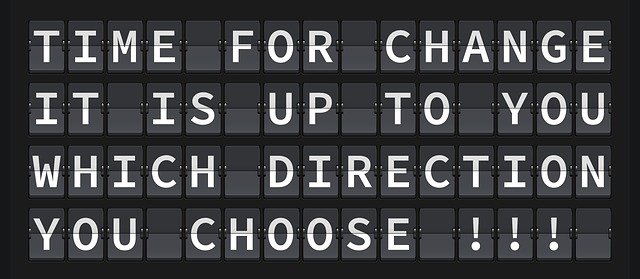Angela Duckworth describes “grit” as the “combination of passion and perseverance”. According to Angela, high performers are separated from under-performers (as measured against natural talent) because they not only have determination but a direction inspired by a passion. In her book, Grit: Why passion and persistence are the secrets to success, she provides substantial research and multiple examples that underpin her perspective on “the psychology of achievement”. She argues exhaustively that talent is not the determinant of success – despite “the global war for talent”.
Talent is misleading
There are many people in numerous areas of endeavour who have what we call “natural talent” but who fail to realise their potential. Angela argues that we often resort to the word “talent” as a way to explain high performance or what we see as exceptional achievement beyond what is perceived as the norm. As I read this, I remembered an incident when I played social tennis recently – I had produced a winning running, cross-court forehand shot which elicited the unexpected comment from my tennis partner, “That’s just natural talent”. Little did he realise that I had been playing tennis for more than 65 years and that my brothers and I used to spend hours each week doing tennis drills, including practising endless cross-court shots.
Angela suggests that high performance or achievement is often described as “magical” because it serves to protect a person’s self-esteem and offers an excuse for not competing or attempting to match the seemingly unattainable level achieved by others. She contends that more often than not, exceptional performance or achievement is the result of grit – the combination of consistent hard work and persistence in the face of setbacks. She maintains that labelling high performance as “natural talent” can mislead us into not making an effort. She gives the example from her own teaching career where she was mislead into thinking that effort had to go into the seemingly talented at the expense of the “strugglers”. This absolved her and the strugglers from making the extra effort required to bring them up to speed.
Perseverance: the hard work behind exceptional performance or achievement
Angela gives many examples of people lacking natural talent who nonetheless are exceptional performers/achievers. For example, she writes about John Irving, author of 12 exceptional books (half of which have been turned into movies) and his struggle with dyslexia. In his school days, John was described as “lazy and stupid”. He overcame his disability by reading with his finger slowly which resulted in his ability to pay attention to an exceptional degree and to realise that repeating something over and over enabled him to understand that through such repletion “something that was never natural becomes almost second nature”. John indicated that his greatest ability as a writer is ”reworking” – having the willingness and stamina to do multiple redrafts of his novels.
Angela also highlighted the “work ethic” of Will Smith who claimed that he was “not to be outworked” – he would go so far as “to die on the treadmill”. He claimed that he lacked the smarts, talent and sexual appeal of other actors, but understood that effort, not talent, determines results. As Angela points out, there are many people who have a precocious level of talent who under-perform because they are not prepared “to put the work in” – it all comes too easy for them so they quickly plateau.
People often drop out before they realise their potential, whether they are attempting to achieve elite performance or just using their exercise bike, running track, weights or tennis practice. The defining personal quality for excellence is “stick-to-itness” which is defined by the Oxford Dictionary as “the ability or capacity to see a course of action through to its completion” – which translates into “dogged perseverance”. According to Angela’s research on excellent performance and achievement, “the highly accomplished were paragons of persistence”. She maintains that we can overlook the persistent, consistent hard work involved because we “see the performance but not the training”.
There is a certain mundanity about the hard work involved – repetition of seemingly boring tasks done daily over an extended period. Angela cites Dan Chambliss who studied Olympic Swimmers and wrote a report titled, The Mundanity of Excellence: An Ethnographic Report on Stratification and Olympic Swimmers. Dan concludes, after three years of research, “Excellence is achieved by the doing of actions, ordinary in themselves, consistently and carefully.” The actions are done with care to ensure they are “correct” but are repeated ad nauseum to enable them to become “habituated” and combined in performance to achieve excellence. He stated that “superb performance is really a confluence of small skills or activities”.
Passion: the driver of perseverance
Angela describes high performers and achievers in her research as people “chasing something of unparalleled interest and importance”. Passion drives persistence. A singular focus maintained over time requires an underlying passion. I used to tell my PhD students not to start a thesis unless they are passionate about the topic – without the passion they will inevitably “run out of steam”. As Dan points out in his report, ‘a dissertation is a mundane piece of work” and the real test is whether you can complete it to the point of submission (which explains why some doctoral attrition rates [dropping out] reach 50% or higher).
Angela cites the work of Francis Galton who undertook a longitudinal study of high achievement in fields such as law, science athletics and the arts. He concluded that exceptional zeal and “the capacity for hard work” enabled the “outliers” to “demonstrate exceptional ability”. Angela also notes that Charles Darwin, Francis’ cousin, agreed that zeal and hard work are “the eminently important difference” in high achievement, not intellect. Darwin claimed that he was not so remarkably clever but his “industry” (application to observation and understanding) were exceptional. He indicated that what drove this persistence and perseverance was a “love of natural science” that has been “steady and ardent”. As Angela points out, it’s not just a love of, or passion for, an area of endeavour but the ability “to stay in love” with it that counts in the final analysis.
Angela describes the work of George Vaillant who persisted with following the Harvard Medical School’s Study of Adult Development (which was undertaken over 75 years). George who was the director of the study for more than 30 years published key insights from the study in three books, the latter of which was Triumphs of Experience: The Men of the Harvard Grant Study. He claimed that he was “not naturally persistent” but undertook the Harvard study on a consistent and persistent basis. He maintained that he was “totally fascinated by the Study” and stated that “there is nothing more interesting than watching people grow”. His passion drove his perseverance.
Effort – the determinant of skill level and achievement
Angela contends that talent can determine how quickly skill is improved if you put in the effort. However, effort builds skill and also enables us to make that skill productive. As skill develops through hard work, we are better able and more willing to use our acquired skills. Angela illustrates this theory of skill development and achievement through effort, with the work of Master potter Warren MacKenzie (considered an American Treasure). Warren initially attempted with his wife Alix (Alixandra Kolesky) to try different arts such as jewellery and textile design and decided to focus on pottery. He thought that excelling at one thing would be much more satisfying than being amateurish at many things. So together he and his wife concentrated on ceramic work “because that was where we felt our true interest lay”.
Warren invested effort in making about fifty pots a day and indicated that the first ten thousand pots were difficult. Each day his skill grew and his achievement in terms of what he considered good pots grew. Looking back on his early pots he viewed them in hindsight as not very good, lacking the richness that he was looking for. Being a potter for most of his adult life (he died at age 94) he was able to apply his expertise and insight to teach ceramic arts at the University of Minnesota over a period of 37 years.
Warren showed that his hard work and application – making pots every day and trying to improve his art – led to skill mastery and enabled him to apply his skill to not only excel in his chosen art form but also to become an esteemed Professor and teacher.
Reflection
Angela cites William James, American psychologist and philosopher, who maintained that people very often failed to actualize their potential – “we are making use of only a small part of our possible mental and physical resources”. The gap in actualization, according to Angela, often comes down to a lack of willingness to persevere with the hard work that is required to turn passion and interest into skill, mastery and application. She encourages everyone to put the work in to pursue their passion – an exhortation echoed by Naomi Simpson in her book, Live What You Love: When Passion and Purpose Change Your life.
I found by applying myself to writing this blog (over 700 posts) that writing has become easier – I can more readily focus on a topic, integrate material from multiple sources (podcasts, novels, videos, articles, blogs) and create an original post. The act of writing has become easier as I have refined my writing process through perseverance (despite many setbacks and distractions) and pursued my passion to grow mindfulness. I continue to learn about being mindful in everyday life and have learnt to adapt my mindfulness practices to changing circumstances. I am always on the lookout for mindfulness exemplars.
When I look back on my tennis experience over more than 60 years, I can see how Angela’s theory of skill acquisition and application through hard work bears fruit in terms of high performance. I have played over 1,000 sets of tennis and practised individual shots over numerous hours over my lifetime. Even when no one else was available to play a game of tennis with me, I would take a bucket of balls to a tennis court and practise my serves and shots up and down the forehand and backhand sidelines as well as crosscourt. Even today in my seventies, I can complete tennis shots that surprise the people I am playing with (such as a backhand half-volley drop shot or a backhand half-volley lob). I find that mindfulness, especially Tai Chi, improves my game.
________________________________
Image by Shahid Abdullah from Pixabay
By Ron Passfield – Copyright (Creative Commons license, Attribution–Non Commercial–No Derivatives)
Disclosure: If you purchase a product through this site, I may earn a commission which will help to pay for the site and the resources to support the blog.


